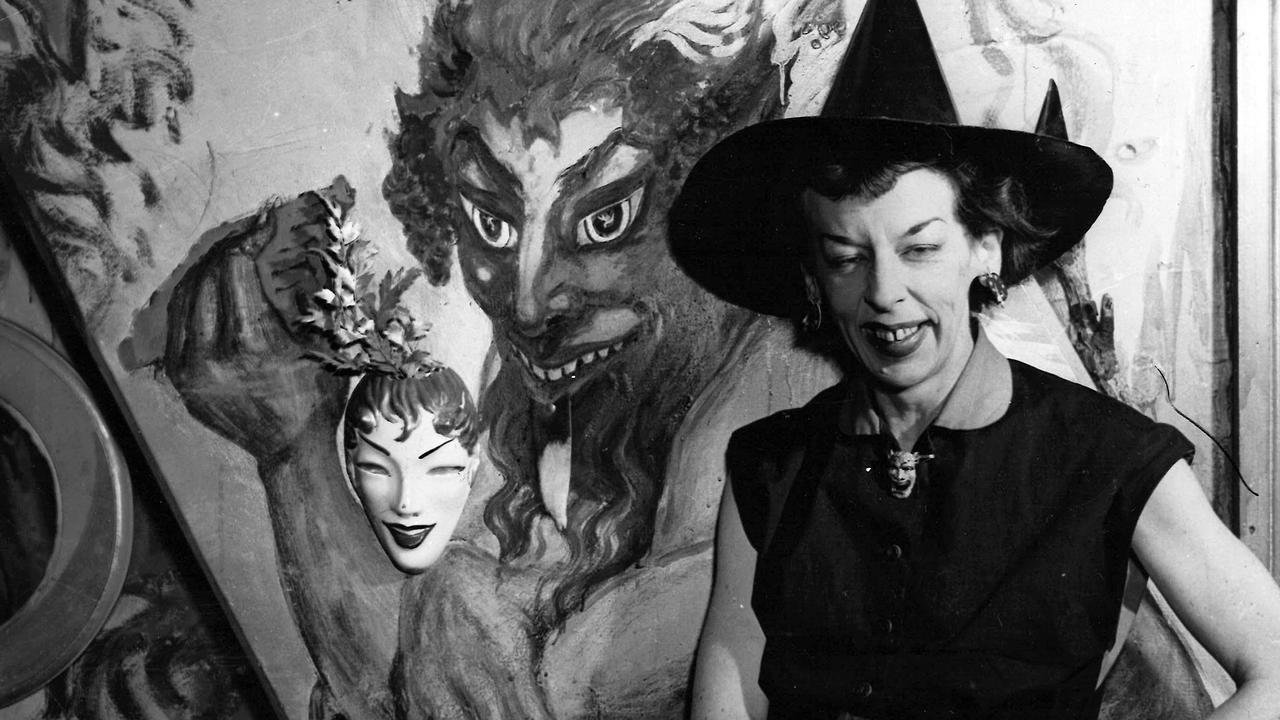The unsung bravery of war correspondent Charles Bean
Armed only with a notebook and writing implements, the journalist risked his life saving others on the frontline at Gallipoli.
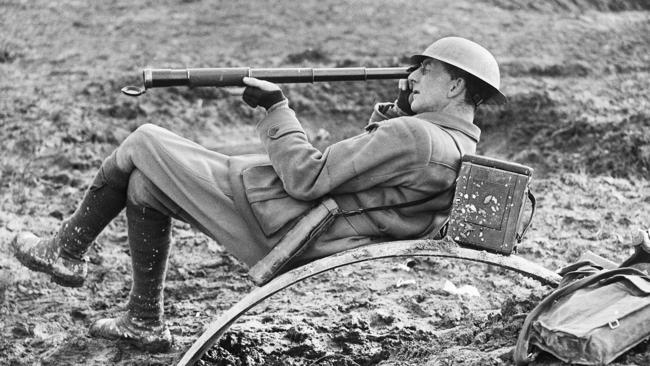
In Black and White
Don't miss out on the headlines from In Black and White. Followed categories will be added to My News.
Thin, bespectacled and erudite, Charles Bean is best remembered as an official war correspondent, historian and the “father of the Anzac legend”.
But amid the horrors of the second battle of Krithia, Bean showed extraordinary bravery when he risked his life time after time to tell the soldiers’ stories from the frontline.
The story is told in the In Black and White podcast on Australia’s forgotten characters with military historian Mat McLachlan, author of new book Krithia: The Forgotten Anzac Battle of Gallipoli.
Bean was a lawyer turned newspaper writer who travelled widely and developed a love of the Australian bush and its characters.
In 1914, Bean was chosen as the official war correspondent and landed with the first troops at Gallipoli on April 25, 1915.
Two weeks after the landing, Bean reported from the frontline at the bloody battle of Krithia, where close to 2000 Anzac troops were killed or wounded.
“Bean was in the frontline – he didn’t have to be in the frontline,” the founder of Mat McLachlan Battlefield Tours says.
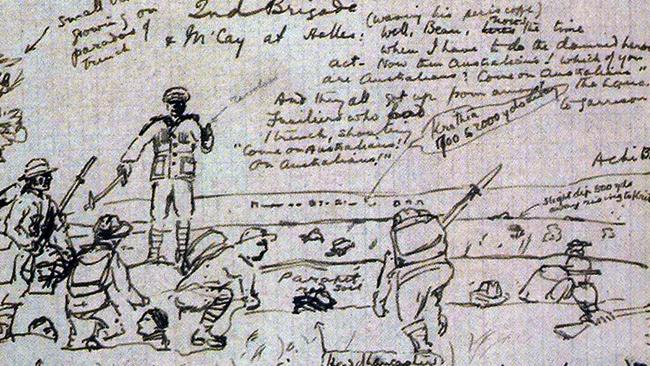
“He could have easily just been in the general area and then interviewed people after the attack.
“There were several occasions where Bean was in danger of being killed.
“He was advancing with the frontline troops as they went forward in one of the deadliest battles Australians would fight in at Gallipoli.
“We have accounts from soldiers describing how they saw Bean on the battlefield and how in awe they were of him and his reckless bravery during that advance.”
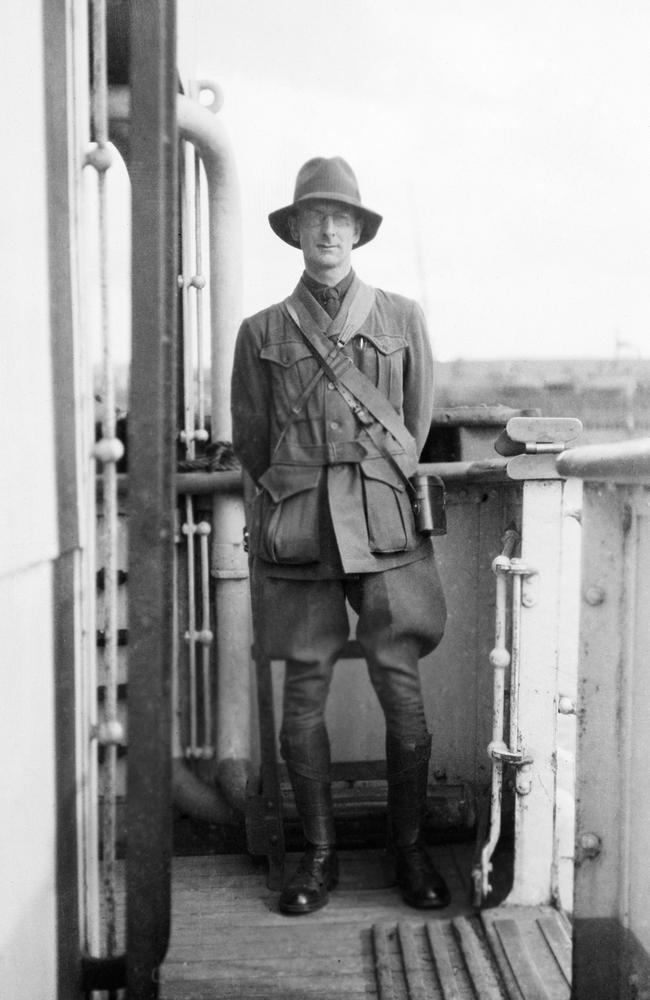
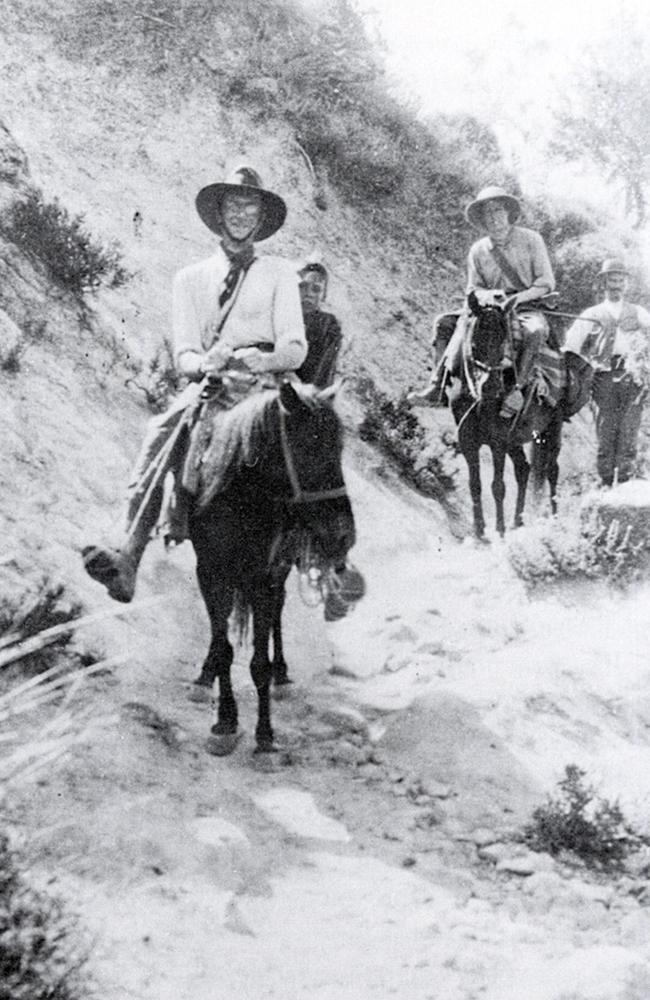
As well as reporting on the action, Bean played an active role in the battle, including dragging a wounded man to safety, for which he was recommended for a bravery award.
Bean, an honorary captain, was ineligible for the award because he was a civilian.
“He was very nearly killed several times,” Mr McLachlan says.
“A soldier described watching Bean advancing and watching him suddenly turn his head as a bullet flew past his ears.
“He helped Colonel (James) McCay when McCay was wounded. He ran messages backwards and forwards.
“And, of course, we should remember throughout this he was completely unarmed because he was a correspondent. The only thing he had with him was a notebook and pencil.
“A week or two later, he actually went back to the battlefield while it was still under fire from the Turks – they were getting long-range fire – and he and another officer walked the ground to try and make a little bit more sense of what had been going on.
“So he certainly can’t be faulted for his bravery.”
To learn more, listen to the interview in the free In Black and White podcast on Apple Podcasts, Spotify or web.
See In Black & White in the Herald Sun newspaper every Friday for more stories and photos from the past.



